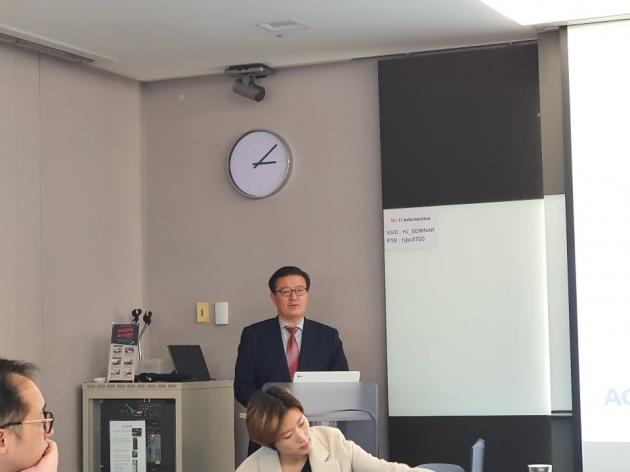Doctors need to change their negative perception of obese patients, as such a bias has become an obstacle for the latter to confront their problems, a local expert said.

Professor Kang Jae-heon at Kangbuk Samsung Hospital made this and other points in a news conference, during which he spoke about a study titled “Awareness, Care & Treatment In Obesity Management International Observation (ACTION IO)” conducted by Novo Nordisk.
The study is the first international survey aimed at identifying differences, barriers, and perceptions of attitudes and behaviors between obese people and health professionals that treat them. The study involved 14,500 obese people and 2,800 health professionals from 11 countries.
“The study showed that eight out of 10 obese people believe that weight loss is their own problem and they are hesitant to talk to doctors,” Professor Kang said. “It took obese people an average of six years to discuss their problem with doctors after realizing that they have to lose weight.” Kang stressed that one of the main problems is that there is a big difference in how doctors and obese patients perceive efforts for or interest in losing weight.
“Data showed that while only 29 percent of health professionals believe that obese people are interested in weight loss, 93 percent of obese people replied they are interested in weight loss,” Professor Kang said. “The results confirm that there is a huge difference in perceiving the desire for weight loss that obese patients have.”
Another questionnaire showed that while 81 percent of obese patients replied that they have tried to lose weight seriously at least once, in the past, only 35 percent of doctors replied that their overweight patients were serious or made efforts to lose weight, Kang added.
Professor Kang also touched on the barriers that block doctors from effectively treating obesity.
“While doctors replied that they believed obese patients do not receive treatment due to the lack of time, unwillingness to lose weight, and financial burdens, a majority of obese patients did not believe that this was the case.”
The study suggests that doctors may have the wrong idea or rash conclusions about their patient, he added.
As obesity is increasing at an alarming rate in Korea, Professor Kang said, doctors need to change their perception of obese patients so that the latter can become more willing and open to come and see doctors and seek professional help in losing weight.

